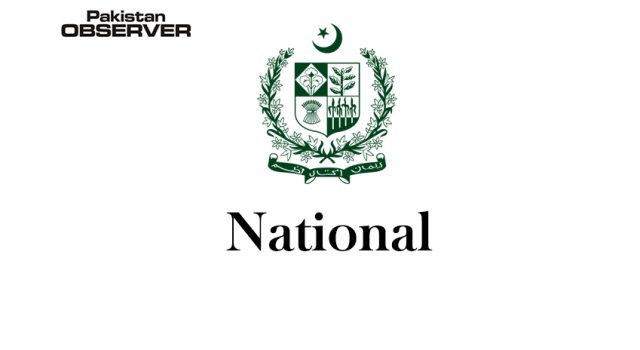Islamabad
The Covid-19 crisis will out of necessity give rise to a new world order based on review of policies and strategies, and reorientation of survival concepts and doctrines. Pakistan cannot afford to remain oblivious to this transformation and will have to align itself with the altering world and swiftly change the business as usual model to business for the future, according to an analyst.
The views were shared at a webinar titled ‘Emerging Trends in Strategic Arena and Pakistan’, which was organized by Institute of Policy Studies (IPS), Islamabad as part of its webinar series ‘Covid-19: Global Challenges, National Response’. The session was addressed by security analyst Brigadier (retd) Said Nazeer Mohmand and jointly chaired by former secretary finance and member of IPS National Academic Council Dr Waqar Masood Khan and Executive President IPS Khalid Rahman. The participants included senior research associate IPS Ambassador (r) Tajammul Altaf and Mirza Hamid Hasan, former secretary, water and power.
The speaker, terming Covid-19 as a non-state actor which could be man-made or natural, said such episodes will keep reoccurring in future. So it is essential for Pakistan to learn from the experiences and response potential of other nations and formulate strategies according to its own environment.
Outlining response options and strategic plans, he said care, cure and preservation of human life should be prioritized by carving out new health strategies with intense budget allocations. Research centers, indigenization of medicines and electro-medical equipment, and naturalization of medical facilities should be strategic health undertakings. This is currently the top priority of the world and should be of Pakistan as well.
He said the country must be well-equipped to detect and stop such threats. For this the National Disaster Management Authority has to be more potent and broad-based. He said it has been seen that big administrative units like provinces are not very viable, active or responsive in dealing with such crises. Small units or administrative pockets are more practical and have a more targeted approach, he added.
He was of the view that there should be a blend of technocrats, experts, politicians and bureaucrats to manage the situation so that a single decision-making body does not prevail during such crisis.
Nazeer also recommended demographic surveys to determine strategies for the social sectors, urban and rural planning, administrative arrangements and crisis management both at the micro and macro level. Besides threat profiling should be conducted to devise strategies for targeted approach and disaster management and resource allocation.
He said the industrial base should be reoriented so that the industries could be adaptable and serve dual or triple purposes. This would entail making it technically viable to switch their output from one production to another according to the need of the time such as the current pandemic.
Regarding agro-based economy, he urged making use of the barren lands and deserts for agriculture and the agro-based industry should be expanded for food security processing and preservation.
Nazeer suggested that the government should provide an opportunity through seminars to the think tanks to better present their research and studies to the decision makers so that these could be collated and policy parameters and guidelines could be formulated. This is particularly important because in the future there will be new curriculums while research and healthcare will get top priority.









